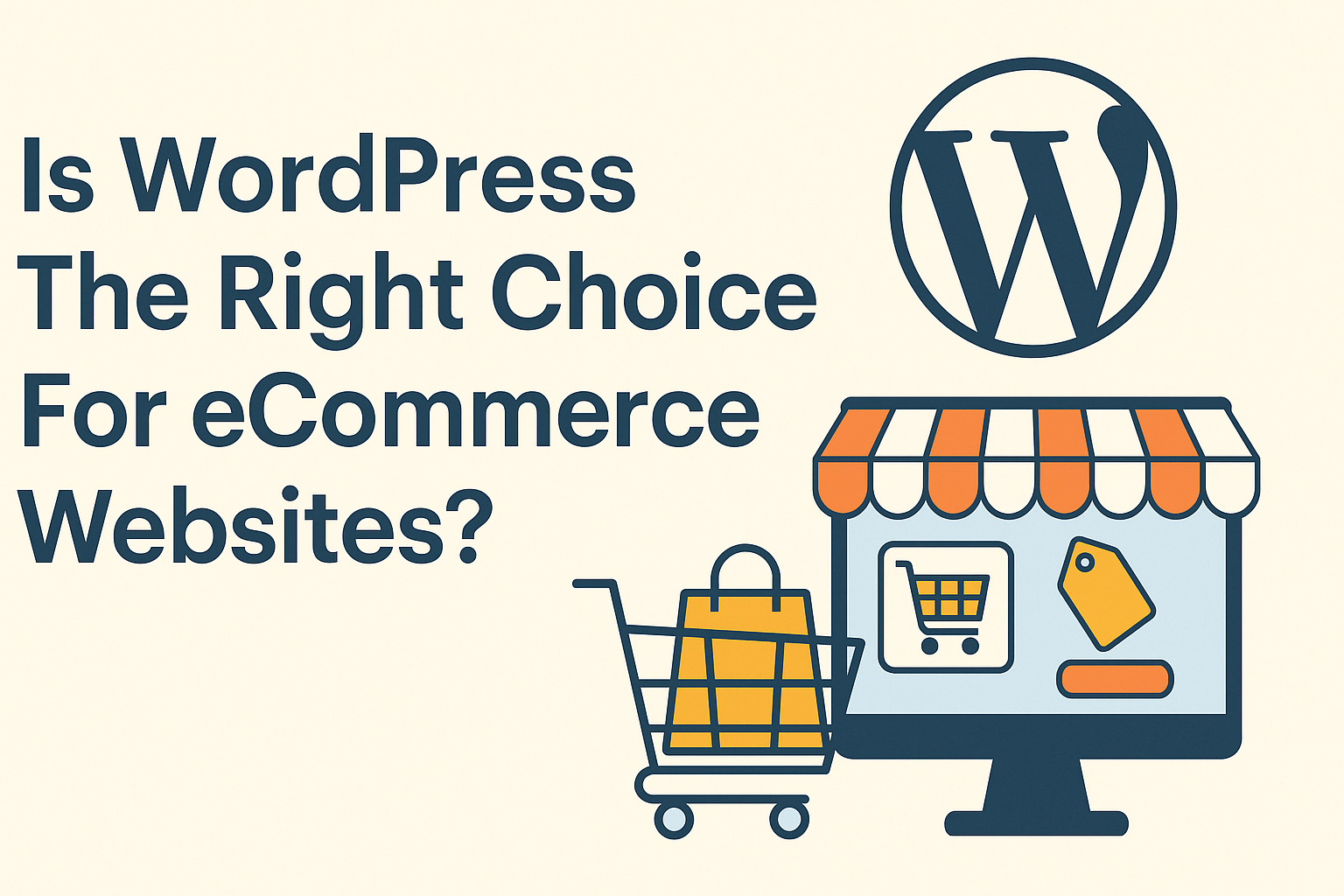When launching an online store, choosing the right platform is crucial for success. With so many options available, many businesses wonder — is WordPress the right choice for eCommerce websites?
Let’s dive deep into the pros, cons, and key considerations to help you decide.
What Makes WordPress Popular for eCommerce?
WordPress powers over 43% of all websites globally, and for good reason. Originally known for blogging, WordPress has evolved into a flexible content management system (CMS) capable of handling complex eCommerce functionalities — especially when combined with powerful plugins like WooCommerce.
Key Advantages of Using WordPress for eCommerce
- Flexibility and Customization
WordPress offers thousands of free and premium themes, allowing you to create a fully customized online store that reflects your brand’s identity. Plugins extend functionality — from payment gateways to inventory management. - WooCommerce Integration
WooCommerce is a free, open-source plugin built specifically for eCommerce. It transforms your WordPress site into a fully functional online store, supporting physical products, digital downloads, subscriptions, and more. - SEO-Friendliness
WordPress is known for its SEO capabilities. With plugins like Yoast SEO or Rank Math, you can easily optimize product pages, blog posts, meta tags, and images to rank higher in search engines. - Scalability
Whether you’re selling 10 products or 10,000, WordPress can scale with your business. By choosing the right hosting plan and optimizing your site’s performance, you can ensure a smooth shopping experience for customers. - Cost-Effective
Starting an eCommerce site with WordPress can be much more affordable compared to custom-built platforms. The basic software is free, and you can choose plugins and themes according to your budget.
Potential Challenges of Using WordPress for eCommerce
While WordPress is powerful, it’s important to be aware of some challenges:
- Maintenance Requirements:
WordPress sites require regular updates (themes, plugins, core software) to stay secure and functional. - Hosting Needs:
Unlike dedicated eCommerce platforms like Shopify, WordPress requires you to arrange hosting. A good hosting provider ensures fast load times and minimal downtime. - Learning Curve:
For beginners, managing WordPress can be overwhelming at first. However, with time and the right tutorials, it becomes much easier.
WordPress vs Other eCommerce Platforms
| Feature | WordPress (WooCommerce) | Shopify | Magento |
|---|---|---|---|
| Customization | Extremely Flexible | Limited | Highly Flexible (complex) |
| Ease of Use | Moderate | Very Easy | Difficult |
| Cost | Flexible (can start low) | Subscription-based | High (development costs) |
| SEO | Excellent | Good | Excellent |
| Scalability | High with good hosting | High | Very High |
When WordPress is the Right Choice for Your eCommerce Business
WordPress is ideal if:
- You want complete control over your website’s design and features.
- You plan to focus heavily on content marketing and SEO.
- You need a cost-effective solution with the ability to scale.
- You prefer a flexible, customizable platform without being tied to a subscription model.
However, if you prefer an out-of-the-box solution with less hands-on management, platforms like Shopify might suit you better.
Final Verdict: Is WordPress Right for Your Online Store?
Yes, WordPress can be a fantastic choice for eCommerce websites — especially when paired with WooCommerce.
It offers flexibility, SEO power, and full ownership over your store. But it does require commitment to maintenance and a willingness to learn the system.
If you’re ready to invest a bit of time upfront, WordPress can offer you a scalable, professional, and highly profitable online store.

